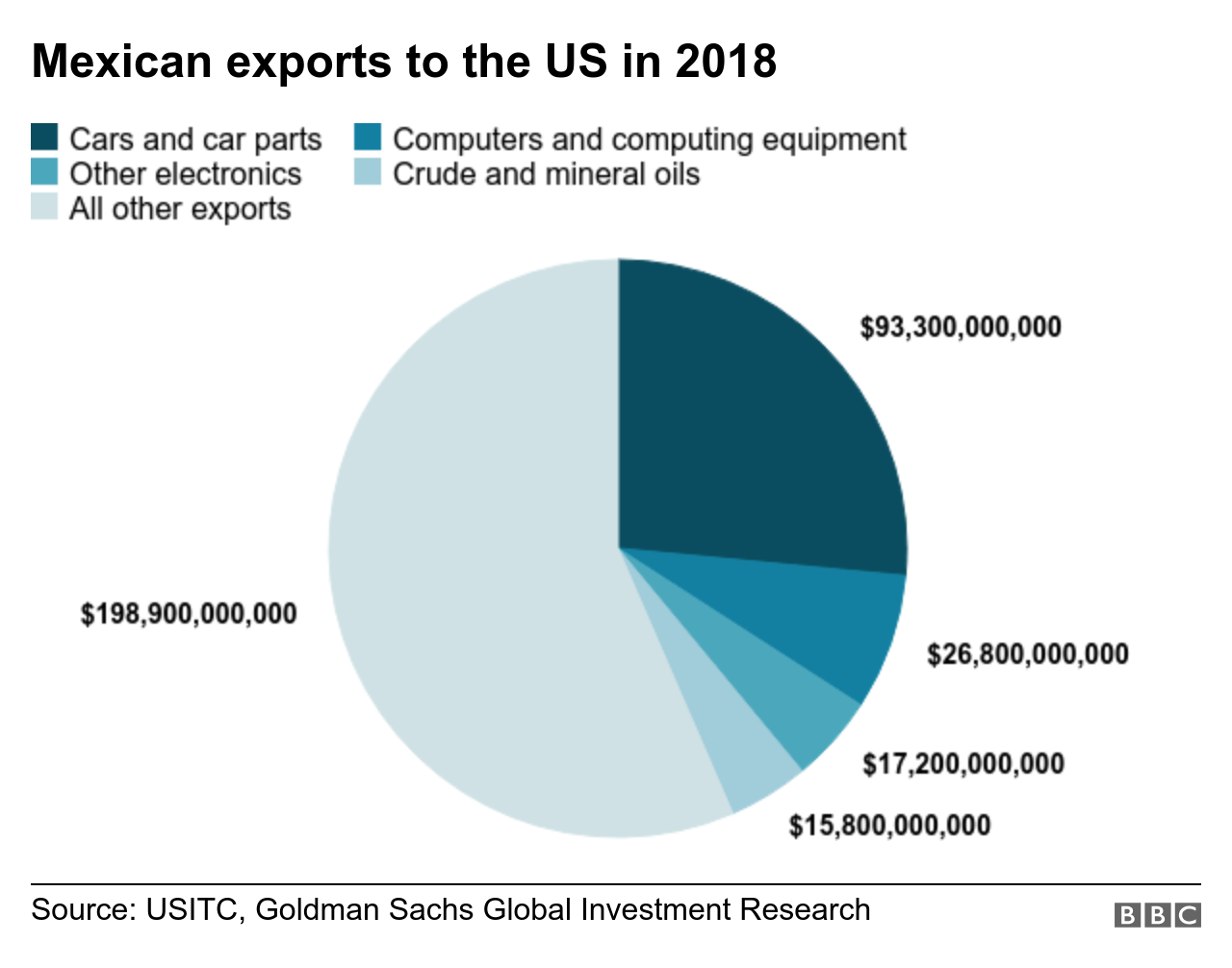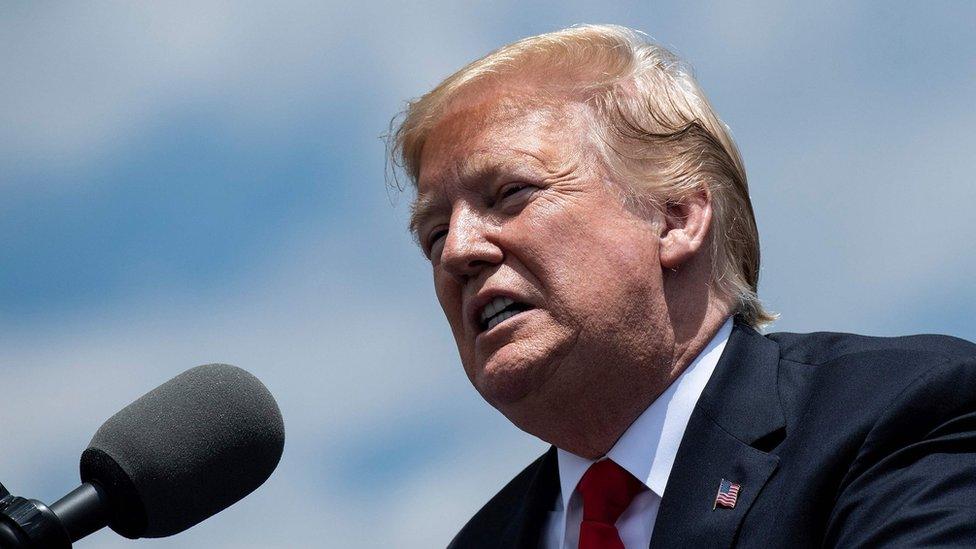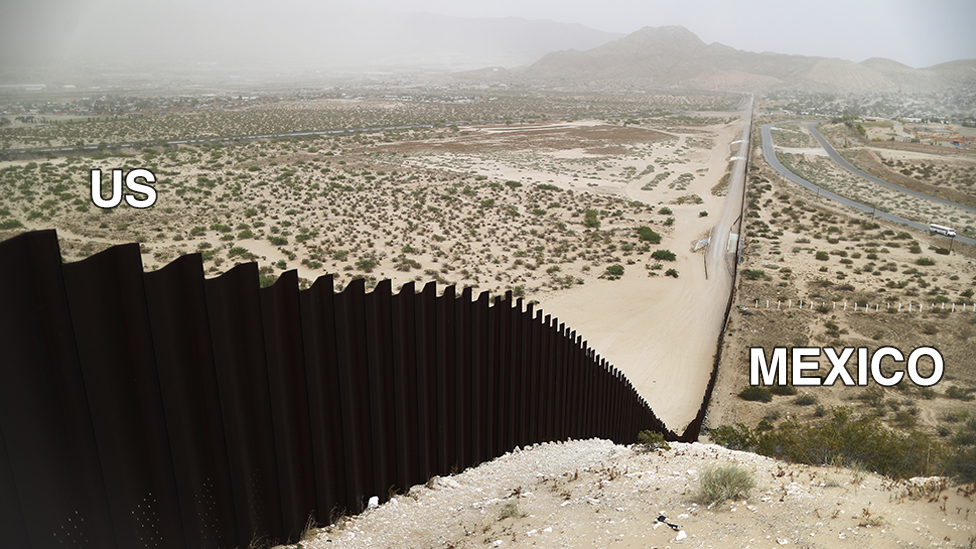Republicans clash with Trump over Mexico tariffs
- Published
Trump says it's "likely" that Mexico tariffs will happen
Republican senators have expressed deep opposition to US President Donald Trump's threatened tariffs on goods coming to the US from Mexico.
In a closed meeting with White House officials, senators said they were considering moves to block the tariffs.
The president has said he plans to impose a 5% duty on all Mexican goods from next week.
Mr Trump, who is on a state visit to the UK, said Republicans would be "foolish" to try and stop him.
Under the president's proposals, the tariffs would rise by 5% every month, reaching 25% in October if Mexico did not act to halt migrants coming across the southern border.
What did the senators say?
"There is not much support in my conference for tariffs, that's for sure," said Senate majority leader Mitch McConnell.
But he declined to confirm whether his party would draft a measure to block Mr Trump's duties from taking effect.
"I will yield to nobody in passion and seriousness and commitment for securing the border," Senator Ted Cruz told reporters.
"But there's no reason for Texas farmers and ranchers and manufacturers and small businesses to pay the price of massive new taxes," he added.
Speaking in London on Tuesday, Mr Trump said he did not expect his party to block him.
"There's nothing more important than borders", he said.


How did we get to this point?
During his election campaign and throughout his time in office, President Trump has sought funds to build a wall on the US-Mexico border.
Mr Trump has long accused Mexico of not doing enough to stem the flow of migrants attempting to cross the US-Mexico border and this is his latest attempt to ramp up pressure.
In February he declared a national emergency at the border.
Border agents say they are overwhelmed, but critics say they are mishandling and mistreating migrants.
Mexican President Andrés Manuel López Obrador has said he does not want "confrontation".
"I propose deepening our dialogue, to look for other alternatives to the migration problem," he said in May.
Five numbers that explain US border crisis
- Published4 June 2019

- Published31 October 2020

- Published31 May 2019
